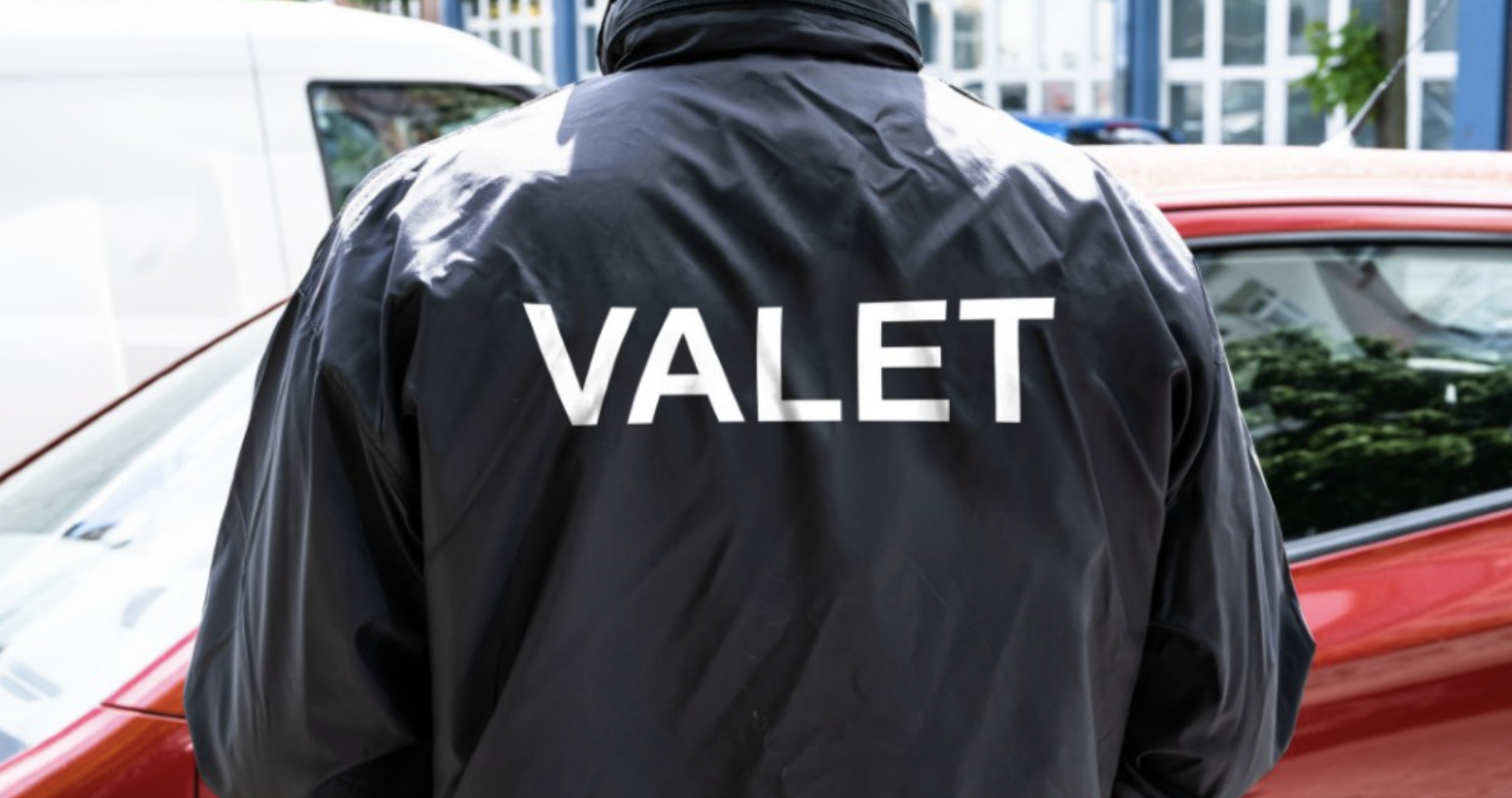Valet attendants in Qatar say soaring temperatures and high humidity have proven to be a struggle this summer.
Qatar’s heat stress laws have helped some workers throughout the scorching summer season, though concerns have been raised for security and valet parking attendants around the country who still struggle to battle humidity.
With temperatures soaring to highs of 49 degrees, the government has required companies with staff working in open sites to halt outdoor work during the harsh summer.
The law, introduced last year, prohibits working outside between 10:00 and 3:30pm from 1 June to 15 September each year in a bid to protect workers from extreme heat stress.
“It’s too hot, you can’t even be outside for five minutes,” security workers in Lusail told Doha News. “Last month, it was extremely hot and it’s becoming better. But it’s still too hot right now”.
The security workers, who work in air conditioned cabins during the prohibited hours, said they are pleased to see that the government is taking the heat issue in the country seriously.
“It’s better than nothing, it’s good to see they are doing something to help us because it’s not safe to be outside.”
The government’s regulations mandates employers to develop a joint plan with workers to assess the risks of heat stress. Companies must provide free drinking water, personal protective equipment and make shaded resting places easily accessible to workers.
In addition, regardless of the time, all work must stop if the wet-bulb globe temperature (WBGT) rises beyond 32.1° in a particular workplace. The WBGT index takes into consideration ambient temperature, humidity, solar radiation and wind speed, according to the International Labour Organisation’s Qatar office.
While the law has largely helped thousands of workers, especially those employed on construction sites across the country, concerns have been raised about other employees, such as valet parking attendants.
In places like Lusail, air conditioners have been installed at valet stations to help workers endure the heat. Workers there told Doha News they work two shifts – one in the morning and one in the evening, with a break from the harsh outdoors between 12pm and 2pm.
“We make do with what we have. This is the life we chose. You can’t change the weather,” one attendant told Doha News.
However, another valet attendant tending to drivers at a popular building in Al Sadd had a less cheerful outlook.
“Yes, we have air conditioning but it doesn’t work,” he told Doha News. Speaking on condition of anonymity, the attendant claimed his company has refused to fix it and said they were told to deal with it or leave.
“We have no option,” the defeated-looking man said. When asked about the 32.1° maximum heat regulations, the attendant said he was not aware of the rule.
“They provide us with shade but that does not do much in this humidity. What can we do, we just work,” he added.
Meanwhile, at Doha’s Porto Arabia, valet attendants told Doha News that the company’s policies have changed for the summer months.
“We don’t have to work overtime. It’s optional now because of the heat,” said the unnamed attendants.
Similar to Lusail, employees of the VIP service at the Pearl sit alongside air conditioners which struggle to cool in the face of the fierce heat.
“We work in shifts, so we’re not out all day. It’s hot, but the summer is temporary,” the staffers told Doha News.
Despite humidity reaching 70% at the Old Doha Port on the evening of 5 August, numerous security guards, mainly women, were seen sweating outside the row of shops along the lavish coloured walkway. Notably, no air conditioners were seen by Doha News.
Speaking on the ongoing inspection and awareness campaigns on occupational heat stress, the International Labour Organization (ILO) has stated that “collaboration between management and workers” is critical in order to prevent heat stress at the workplace.
“It is critical that all outdoor workers are protected from heat stress. Because workplaces and work organisation can be so different, the law requires each employer with outdoor workers to develop a risk assessment that also sets out actions to prevent heat stress,” a spokesman from the ILO told Doha News.
“The identification of risks and solutions should be based on a collaboration between management and workers and their intimate knowledge of their own workplace,” the ILO added.
Crackdown on violations
Qatar’s heat stress prevention law has had a major positive impact on thousands of workers across the country, and authorities have carried out rampant inspections to ensure violators are dealt with.
In June alone, the labour ministry carried out more than 4,400 inspection tours of work sites and closed down 269 locations across the country for violating the terms of the heat stress laws.
Last year, Qatar managed to slash the number of related injuries by 55 percent, a significant improvement from 2019 when 1,372 cases were reported.
Additionally, there have also been bans on motorcycle deliveries during peak hours after mass calls to protect workers. In a social media poll posted mid-June last year, 83% of participating Doha News readers said they did not think enough was being done to protect drivers from the heat.
Since then, leading delivery companies such as Talabat and Snoonu have announced measures to help protect their workers.
Talabat now provides “cooling vests” for its drivers, while Snoonu has established “chill spots” where workers can rest, cool down and get refreshment for free.
Meanwhile, with weeks left until outdoor work resumes during peak hours, temperatures are expected to continue rising throughout the month, with some days reaching 49 degrees.







